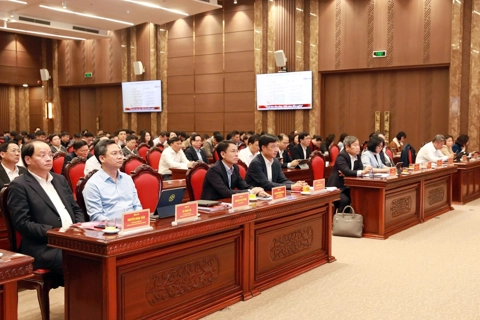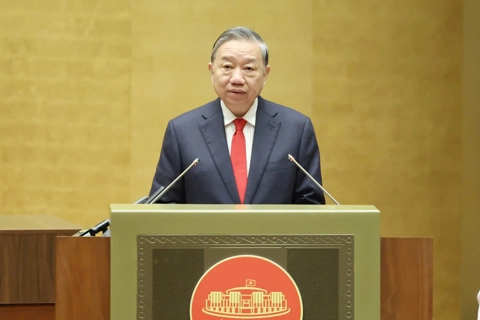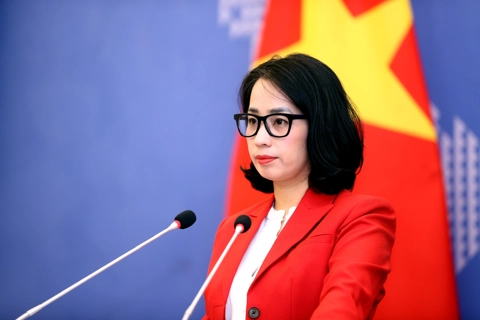Vietnam’s carbon market to drive low-carbon technology and climate finance
Building a carbon market is a strategic move for Vietnam to fulfill the country’s climate commitments.
THE HANOI TIMES — Vietnam is developing a domestic carbon market to promote low-emission technologies, supporting a green development path for the government's net-zero emissions target by 2050.
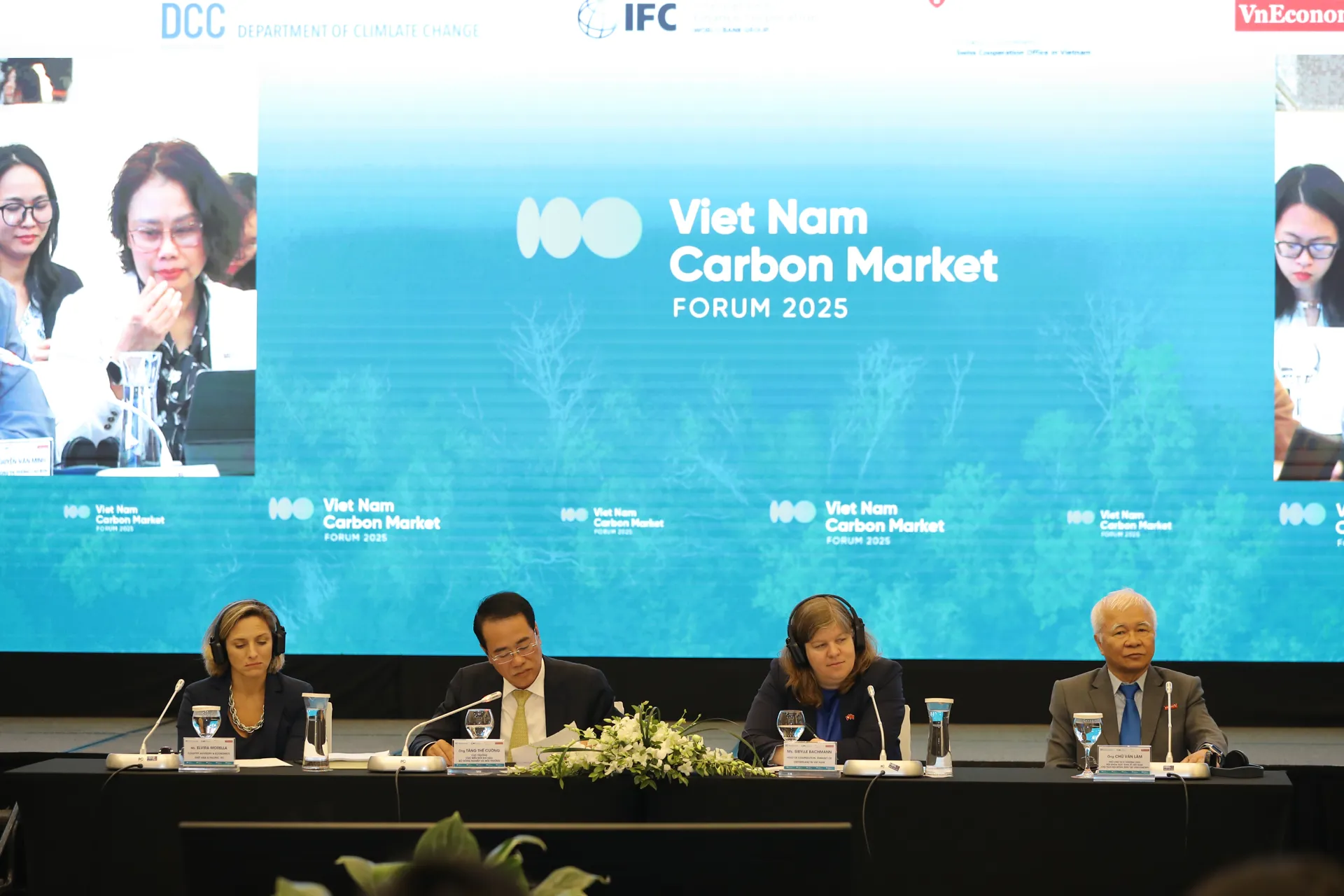
Representives from the Department of Climate Change, IFC, and Swiss Embassy in Vietnam chair the forum. Photos: Ngoc Mai/The Hanoi Times
Tang The Cuong, Director of the Department of Climate Change under the Ministry of Agriculture and Environment (MAE), said at the Vietnam Carbon Market Forum 2025 held today [April 10].
"In its efforts to meet climate commitments, building and developing the carbon market is a strategic step for Vietnam," he said.
Vietnam's carbon market roadmap, set out in Decision No. 232/QĐ-TTg issued by the Prime Minister on January 24, 2025, is structured into three phases. The first phase, running until June 2025, focuses on finalizing the legal framework and building the technical infrastructure. The second phase, from June 2025 to the end of 2028, will serve as a pilot period. The third phase will see the official launch of the market in 2029.
Institutionally, this roadmap builds on the 2020 Environmental Protection Law, signaling a broader policy transition from a brown economy to a green one, he continued.
According to Cuong, the MAE is working with the Ministry of Finance to draft a decree to establish a domestic carbon exchange and to finalize regulations for international carbon trading under the Paris Agreement.
"Vietnam's ministries aim to accelerate the development of a carbon market and implement common carbon pricing tools, including carbon taxes and credit trading mechanisms," Cuong added.
Carbon pricing tools, including both compliance and voluntary markets, are expected to be critical tools for driving emissions reductions and scaling up low-carbon technologies. These mechanisms will also support broader green growth objectives.
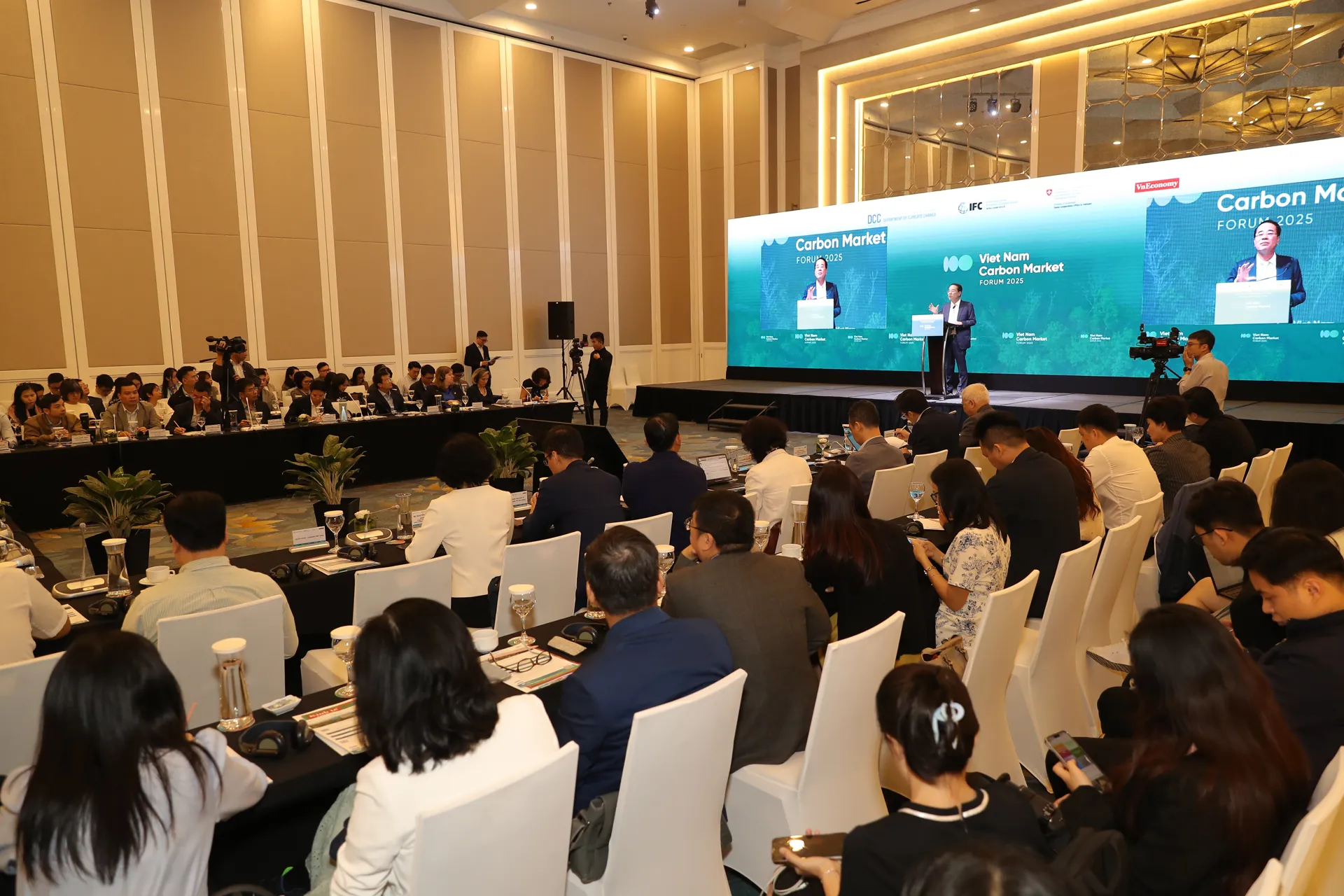
The Vietnam Carbon Market Forum 2025 held in Hanoi on April 10 gathers different stakeholders.
At the forum, Elvira Morella, Country Advisory & Economics at the International Finance Corporation (IFC), highlighted the growing involvement of Vietnam’s private sector, particularly in areas such as green banking and sustainable infrastructure.
"We value the role of the private sector in innovation and sustainable practices to achieve net-zero emissions and broader climate goals by 2050. Some 2,000 companies worldwide have already committed to net zero under a common global framework," she said.
Morella noted that IFC has provided significant financing to Vietnamese enterprises, particularly in the agriculture and infrastructure sectors. "Our annual commitments amount to about $2 billion, much of which is channeled to green and sustainable projects," she said.
Also addressing the Forum, Sibylle Bachmann, Head of Cooperation at the Swiss Embassy in Vietnam, reiterated the importance of international cooperation in climate action. "Greenhouse gas emissions do not respect national borders, which is why global coordination is essential," she said. "Switzerland, a country with rapid industrialization and comprehensive climate laws, is committed to promoting international cooperation to achieve common climate goals."
Bachmann also highlighted the Swiss government's commitment to supporting Vietnam's climate ambitions. "Between 2025 and 2028, climate finance will be a key focus of Switzerland's cooperation with Vietnam," she said. "We hope to see Vietnamese businesses taking proactive steps with transparent markets, innovative practices, and practical measures to translate global climate goals into tangible results."
The carbon credit exchange will enable businesses to earn credits by undertaking verified emission reduction activities. These credits can then be sold to other companies seeking to offset their CO₂ emissions. Transactions will be conducted via blockchain technology, ensuring transparency, security, and traceability. Each credit will be tokenized and traded on the platform.
Experts argue that carbon trading is a mechanism for meeting environmental commitments and a driver of financial innovation as well. By establishing a transparent and efficient carbon trading system, Vietnam aims to stimulate a new class of climate-related investments, generate new revenue streams for enterprises, and create business opportunities for intermediaries and investors.
|
Vietnam’s domestic carbon market is expected to trade two main types of commodities: Greenhouse gas (GHG) emission allowances; Carbon credits derived from both domestic and international exchange and offset mechanisms.Participants in the market will include: Facilities in sectors subject to mandatory GHG inventories, as designated by the Prime Minister; Organizations involved in carbon credit exchange and offsetting activities in line with Vietnamese law and relevant international agreements; Other entities and individuals engaged in the investment and trading of emission allowances and carbon credits. |




